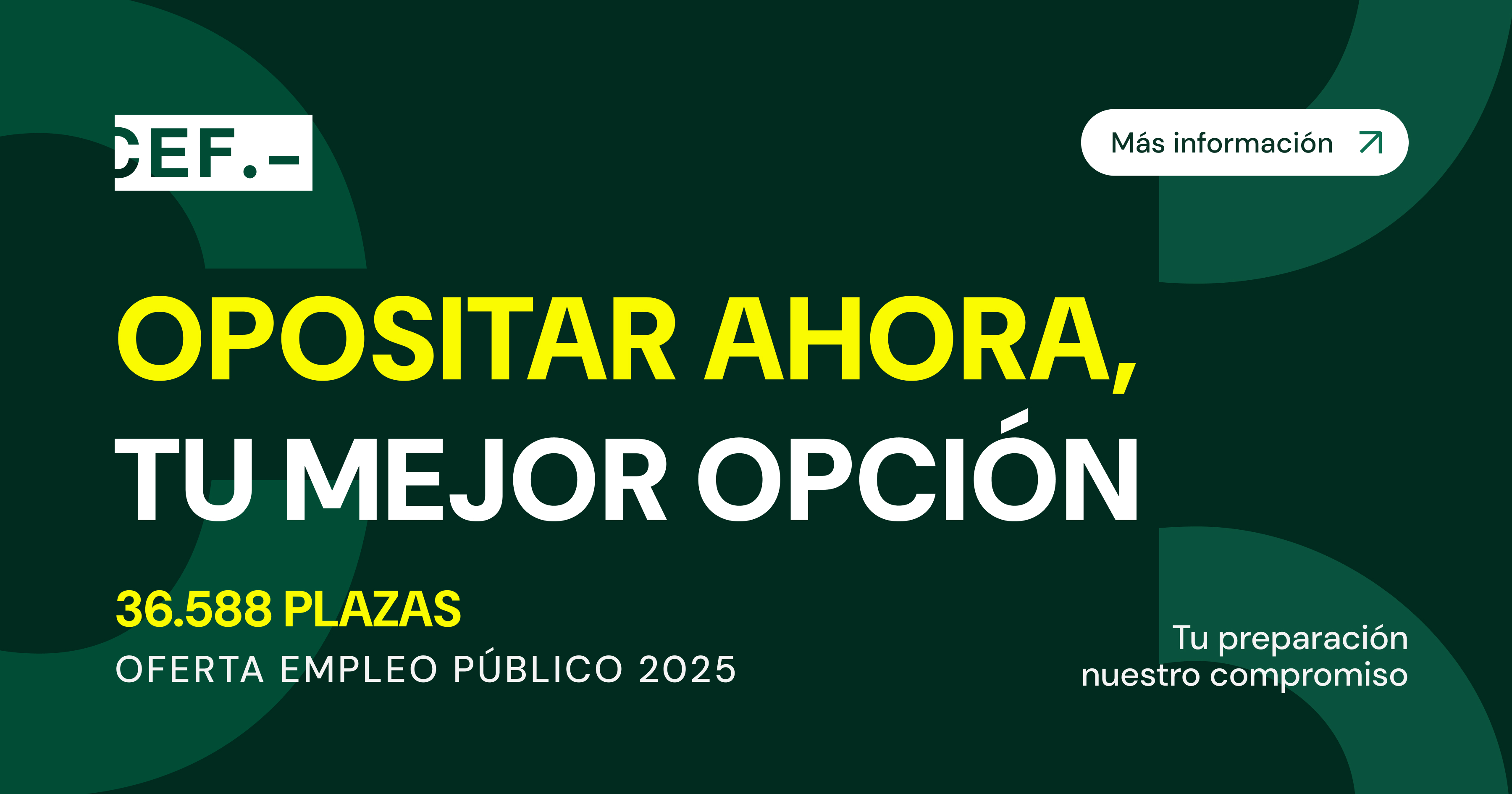Recursos humanos. Resiliencia organizativa: la fuerza de la compasión y el altruismo
Este trabajo ha sido finalista del Premio Estudios Financieros 2021 en la modalidad de Recursos humanos.
Recientemente se ha expuesto la necesidad de un cambio de paradigma en las ciencias organizacionales que incluye un cambio de egocentrismo a la interconexión. Este nuevo paradigma de gestión emergente y con carácter humanista considera que las personas integrantes de la organización no solo están motivadas por el interés propio, sino también por valores centrados en terceros, como el altruismo y la compasión por los/las demás. Esta propuesta alternativa plantea la necesidad de una perspectiva más humanista para la gestión empresarial. Con base en este enfoque, en este estudio exploramos las consecuencias de la compasión y el altruismo en el lugar de trabajo para promover el desempeño de la empresa, utilizando la resiliencia organizativa como una variable mediadora. Con este fin, aplicamos un modelo de ecuación estructural a una muestra de empresas altamente innovadoras de diferentes sectores. Los resultados confirman que sentir el sufrimiento de los otros/as conlleva a un clima laboral basado en el altruismo. Y este clima hace que la fuerza laboral sea más resiliente a los cambios, lo que aumenta el rendimiento de la empresa. Por lo tanto, este estudio supone un avance en la literatura al descubrir algunos beneficios de promover la compasión y el altruismo en las organizaciones.
Palabras clave: compasión; altruismo; resiliencia organizativa; desempeño organizacional.
Zina Barghouti Abrini
Investigadora predoctoral. Departamento de Administración de Empresas y Marketing.
Universidad Jaume I
Jacob Guinot Reinders
Contratado doctor. Departamento de Administración de Empresas y Marketing.
Universidad Jaume I
Ricardo Chiva Gómez
Catedrático de Organización de Empresas. Departamento de Administración de Empresas y Marketing.
Universidad Jaume I
Puede adquirir este documento en la página web ceflegal.com
RTSS. CEF. NÚM. 466 (enero-febrero 2022)
Referencias bibliográficas
Alegre Vidal, Joaquín y Chiva Gómez, Ricardo. (2008). Assessing the impact of organizational learning capability on product innovation performance: An empirical test. Technovation, 28(6), 315-326. https://doi.org/10.1016/j.technovation.2007.09.003.
Batson, C. Daniel y Shaw, Laura L. (1991). Evidence for altruism: Toward a pluralism of prosocial motives. Psychological Inquiry, 2(2), 107-122. https://www.jstor.org/stable/1449242.
Bolino, Mark C.; Klotz, Anthony C.; Turnley, William H. y Harvey, Jaron. (2013). Exploring the dark side of organizational citizenship behavior. Journal of Organizational Behavior, 34(4), 542-559. https://doi.org/10.1002/job.1847.
Chiva Gómez, Ricardo y Alegre Vidal, Joaquín. (2009). Investment in design and firm performance: The mediating role of design management. Journal of Product Innovation Management, 26(4), 424-440.
Comfort, Louise K. (1994). Risk and resilience: Inter-organizational learning following the Northridge earthquake of 17 January 1994. Journal of Contingencies and Crisis Management, 2(3), 157-170. https://doi.org/10.1111/j.1468-5973.1994.tb00038.x.
Coutu, Diane L. (2002). How resilience works. Harvard Business Review, 80(5), 46-55.
Cronbach, Lee J. (1951). Coefficient alpha and the internal structure of tests. Psychometrica, 16(3), 297-334.
Dutton, Jane E.; Workman, Kristina M. y Hardin, Ashley E. (2014). Compassion at work. Annual Review of Organizational Psychology and Organizational Behavior, 1, 277-304.
Dutton, Jane E.; Worline, Monica C.; Frost, Peter J. y Lilius, Jacoba M. (2006). Explaining compassion organizing. Administrative Science Quarterly, 5(1), 59-96. https://doi.org/10.2189/asqu.51.1.59.
Emmerik, I. Hetty van; Jawahar, I. M. y Stone, Thomas H. (2005). Associations among altruism, burnout dimensions, and organizational citizenship behaviour. Work & Stress, 19(1), 93-100. https://doi.org/10.1080/02678370500046283.
Engstrom, Ted y Cedar, Paul. (2011). Compassionate leadership. Baker Books.
Fornell, Claes y Larcker, David F. (1981). Evaluating structural equation models with unobservable variables and measurement error. Journal of Marketing Research, 18(1), 39-50. https://doi.org/10.2307/3151312.
Frost, Peter J. (1999). Why compassion counts! Journal of Management Inquiry, 8(2), 127-133. https://doi.org/10.1177/105649269982004.
Growald, Eileen Rockefeller y Luks, Allan. (1988). The healing power of doing good. American Health, 98-100.
Guinot Reinders, Jacob; Chiva Gómez, Ricardo y Mallén Broch, Fermín. (2013). Organizational trust and performance: Is organizational learning capability a missing link? Journal of Management & Organization, 19(5), 559-582.
Guinot Reinders, Jacob; Chiva Gómez, Ricardo y Mallén Broch, Fermín. (2015). The effects of altruism and relationship conflict on organizational learning. International Journal of Conflict Management, 26(1), 85-112.
Guinot Reinders, Jacob; Chiva Gómez, Ricardo y Mallén Broch, Fermín. (2016). Linking altruism and organizational learning capability: A study from excellent human resources management organizations in Spain. Journal of Business Ethics, 138(2), 349-364.
Guinot Reinders, Jacob; Miralles Armenteros, Sandra; Rodríguez Sánchez, Alma M. y Chiva Gómez, Ricardo. (2020). Do compassionate firms outperform? The role of organizational learning. Employee Relations, 42(3), 717-734. https://doi.org/10.1108/ER-07-2019-0275.
Gupta, Manu; Kumar, Vinod y Singh, Mandeep. (2014). Creating satisfied employees through workplace spirituality: A study of the private insurance sector in Punjab (India). Journal of Business Ethics, 122(1), 79-88.
Hair, Joseph F.; Anderson, Rolph E.; Tatham, Ronald L. y Black, William C. (1998). Multivariate data analysis. Prentice Hall.
Han, Tzu-Sian; Chiang, Hsu-Hsin y Chang, Aihwa. (2010). Employee participation in decision making, psychological ownership and knowledge sharing: Mediating role of organizational commitment in Taiwanese high-tech organizations. The International Journal of Human Resource Management, 21(12), 2.218-2.233. https://doi.org/10.1080/09585192.2010.509625.
Kanov, Jason M. (2021). Why suffering matters! Journal of Management Inquiry, 30(1), 85-90.
Kanov, Jason M.; Maitlis, Sally; Worline, Monica C.; Dutton, Jane E.; Frost, Peter J. y Lilius, Jacoba M. (2004). Compassion in organizational life. American Behavioral Scientist, 47(6), 808-827. https://doi.org/10.1177/0002764203260211.
Kantur, Deniz y İşeri-Say, Arzu. (2012). Organizational resilience: A conceptual integrative framework. Journal of Management & Organization, 18(6), 762-773. https://doi.org/10.5172/jmo.2012.18.6.762.
Kanungo, Rabindra N. y Conger, Jay A. (1990). The quest for altruism in organizations. En Suresh Srivastva y David L. Cooperrider (Auts.), Appreciative management and leadership: The power of positive thought and action in organizations (pp. 228-256). Jossey-Bass/Wiley.
Kanungo, Rabindra N. y Conger, Jay A. (1993). Promoting altruism as a corporate goal. Academy of Management Perspectives, 7(3), 37-48. https://doi.org/10.5465/ame.1993.9411302345.
Lai, Yanqing; Saridakis, George; Blackburn, Robert y Johnstone, Stewart. (2016). Are the HR responses of small firms different from large firms in times of recession? Journal of Business Venturing, 31(1), 113-131. https://doi.org/10.1016/j.jbusvent.2015.04.005.
Lemmon, Grace y Wayne, Sandy J. (2015). Underlying motives of organizational citizenship behavior: Comparing egoistic and altruistic motivations. Journal of Leadership & Organizational Studies, 22(2), 129-148. https://doi.org/10.1177/1548051814535638.
Lengnick-Hall, Cynthia A. y Beck, Tammy E. (2005). Adaptive fit versus robust transformation: How organizations respond to environmental change. Journal of Management, 31(5), 738-757. https://doi.org/10.1177/0149206305279367.
Lengnick-Hall, Cynthia A.; Beck, Tammy E. y Lengnick-Hall, Mark L. (2011). Developing a capacity for organizational resilience through strategic human resource management. Human Resource Management Review, 21(3), 243-255. https://doi.org/10.1016/j.hrmr.2010.07.001.
Leontopoulou, Sophie. (2010). An exploratory study of altruism in Greek children: Relations with empathy, resilience and classroom climate. Psychology, 1(5), 377-385. DOI: 10.4236/psych.2010.15047.
Lilius, Jacoba M.; Worline, Monica C.; Dutton, Jane E.; Kanov, Jason M. y Maitlis, Sally. (2011). Understanding compassion capability. Human Relations, 64(7), 873-899. https://doi.org/10.1177/0018726710396250.
Lilius, Jacoba M.; Worline, Monica C.; Maitlis, Sally; Kanov, Jason; Dutton, Jane E. y Frost, Peter. (2008). The contours and consequences of compassion at work. Journal of Organizational Behavior: The International Journal of Industrial, Occupational and Organizational Psychology and Behavior, 29(2), 193-218. https://doi.org/10.1002/job.508.
Loi, Raymond; Ngo, Hang-Yue; Zhang, Lingqing y Lau, Victor P. (2011). The interaction between leader-member exchange and perceived job security in predicting employee altruism and work performance. Journal of Occupational and Organizational Psychology, 84(4), 669-685. https://doi.org/10.1348/096317910X510468.
Luthans, Fred. (2002). The need for and meaning of positive organizational behavior. Journal of Organizational Behavior, 23(6), 695-706. https://doi.org/10.1002/job.165.
Mallén Broch, Fermín; Chiva Gómez, Ricardo; Alegre Vidal, Joaquín y Guinot Reinders, Jacob. (2015). Are altruistic leaders worthy? The role of organizational learning capability. International Journal of Manpower, 36(3), 271-295.
Näswall, Katharina; Kuntz, Joana; Hodliffe, Morgana y Malinen, Sanna. (2013). Employee resilience scale (EmpRes): Technical report. Resilient Organisations Research Report 2013/06. https://resorgs.org.nz/wp-content/uploads/2017/07/employee_resilience_scale.pdf.
Nunnally, Jum C. (1978). Psychometric theory. McGraw-Hill.
Organ, Dennis W. (1988). Organizational citizenship behavior: The good soldier syndrome. Lexington Books/D. C. Heath and Com.
Organ, Dennis W.; Podsakoff, Philip M. y MacKenzie, Scott B. (2006). Organizational citizenship behavior: Its nature, antecedents, and consequences. Sage.
Parker, Christopher P.; Baltes, Boris B.; Young, Scott A.; Huff, Joseph W.; Altmann, Robert A.; LaCost, Heather A. y Roberts, Joanne E. (2003). Relationships between psychological climate perceptions and work outcomes: A meta-analytic review. Journal of Organizational Behavior. The International Journal of Industrial, Occupational and Organizational Psychology and Behavior, 24(4), 389-416. https://doi.org/10.1002/job.198.
Petchsawang, Pawinee y Duchon, Dennis. (2009). Measuring workplace spirituality in an Asian context. Human Resource Development International, 12(4), 459-468.
Petchsawang, Pawinee y McLean, Gary N. (2017). Workplace spirituality, mindfulness meditation, and work engagement. Journal of Management, Spirituality & Religion, 14(3), 216-244.
Pirson, Michael A. (2017). Humanistic management: Protecting dignity and promoting well-being. Cambridge University Press.
Pirson, Michael A. y Lawrence, Paul R. (2010). Humanism in business. Towards a paradigm shift? Journal of Business Ethics, 93, 553-565. https://doi.org/10.1007/s10551-009-0239-1.
Podsakoff, Philip M. y MacKenzie, Scott B. (1997). Impact of organizational citizenship behavior on organizational performance: A review and suggestion for future research. Human Performance, 10(2), 133-151. https://doi.org/10.1207/s15327043hup1002_5.
Podsakoff, Philip M.; MacKenzie, Scott B.; Lee, Jeong-Yeon y Podsakoff, Nathan P. (2003). Common method biases in behavioral research: A critical review of the literature and recommended remedies. Journal of Applied Psychology, 88(5), 879-903.
Podsakoff, Philip M.; MacKenzie, Scott B.; Moorman, Robert H. y Fetter, Richard. (1990). Transformational leader behaviors and their effects on followers’ trust in leader, satisfaction, and organizational citizenship behaviors. Leadership Quarterly, 1(2), 107-142. https://doi.org/10.1016/1048-9843(90)90009-7.
Podsakoff, Philip M. y Organ, Dennis W. (1986). Self-reports in organizational research: Problems and prospects. Journal of Management, 12(4), 531-544. https://doi.org/10.1177/014920638601200408.
Post, Stephen G. (2005). Altruism, happiness, and health: It’s good to be good. International Journal of Behavioral Medicine, 12(2), 66-77.
Riolli, Laura y Savicki, Victor. (2003). Information system organizational resilience. Omega, 31(3), 227-233. https://doi.org/10.1016/S0305-0483(03)00023-9.
Rodríguez Sánchez, Alma M.; Guinot Reinders, Jacob; Chiva Gómez, Ricardo y López Cabrales, Álvaro. (2019). How to emerge stronger: Antecedents and consequences of organizational resilience. Journal of Management & Organization, 27(3), 442-459. https://doi.org/10.1017/jmo.2019.5.
Rynes, Sara L.; Bartunek, Jean M.; Dutton, Jane E. y Margolis, Joshua D. (2012). Care and compassion through an organizational lens: Opening up new possibilities. Academy of Management Review, 37(4), 403-423.
Schneider, Benjamin; González Romá, Vicente; Ostroff, Cheri y West, Michael. (2017). Organizational climate and culture: Reflections on the history of the constructs in the Journal of Applied Psychology. Journal of Applied Psychology, 102(3), 468-482. https://doi.org/10.1037/apl0000090.
Simmons, Roberta G. (1991). Presidential address on altruism and sociology. The Sociological Quarterly, 32(1), 1-22. http://www.jstor.org/stable/4121438.
Smith, C. Ann; Organ, Dennis W. y Near, Janet P. (1983). Organizational citizenship behavior: Its nature and antecedents. Journal of Applied Psychology, 68(4), 653-663. https://doi.org/10.1037/0021-9010.68.4.653.
Southwick, Steven M.; Lowthert, Bernadette T. y Graber, Ann V. (2016). Relevance and application of logotherapy to enhance resilience to stress and trauma. En Alexander Batthyány (Ed.), Logotherapy and existential analysis (pp. 131-149). Springer.
Sun, Ly-Yun; Aryee, Samuel y Law, Kenneth S. (2007). High-performance human resource practices, citizenship behavior, and organizational performance: A relational perspective. Academy of Management Journal, 50(3), 558-577. https://doi.org/10.5465/amj.2007.25525821.
Taleb, Nassim Nicholas. (2012). Antifragile: How to live in a world we don’t understand. Allen Lane.
Tippins, Michael J. y Sohi, Ravipreet S. (2003). IT competency and firm performance: Is organizational learning a missing link? Strategic Management Journal, 24(8), 745-761. https://doi.org/10.1002/smj.337.
Vera, María; Rodríguez Sánchez, Alma M. y Salanova, Marisa. (2017). May the force be with you: Looking for resources that build team resilience. Journal of Workplace Behavioral Health, 32(2), 119-138. https://doi.org/10.1080/15555240.2017.1329629.
Vogus, Timothy J. y Sutcliffe, Kathleen M. (2007). Organizational resilience: Towards a theory and research agenda. 2007 IEEE International Conference on Systems, Man and Cybernetics (pp. 3.418-3.422). DOI: 10.1109/ICSMC.2007.4414160.
Walz, Sandra M. y Niehoff, Brian P. (1996). Organizational citizenship behaviors and their effect on organizational effectiveness in limited-menu restaurants. Academy of Management Proceedings, 1, 307-311. https://doi.org/10.5465/ambpp.1996.4980770.
Williams, Trenton A.; Gruber, Daniel A.; Sutcliffe, Kathleen M.; Shepherd, Dean A. y Zhao, Eric Yanfei. (2017). Organizational response to adversity: Fusing crisis management and resilience research streams. Academy of Management Annals, 11(2), 733-769. https://doi.org/10.5465/annals.2015.0134.
Worline, Monica C. y Dutton, Jane E. (2017a). Awakening compassion at work: The quiet power that elevates people and organizations. Berrett-Koehler Publishers.
Worline, Monica C. y Dutton, Jane E. (2017b). 31 How leaders shape compassion processes in organizations. The Oxford Handbook of Compassion Science, 435.







